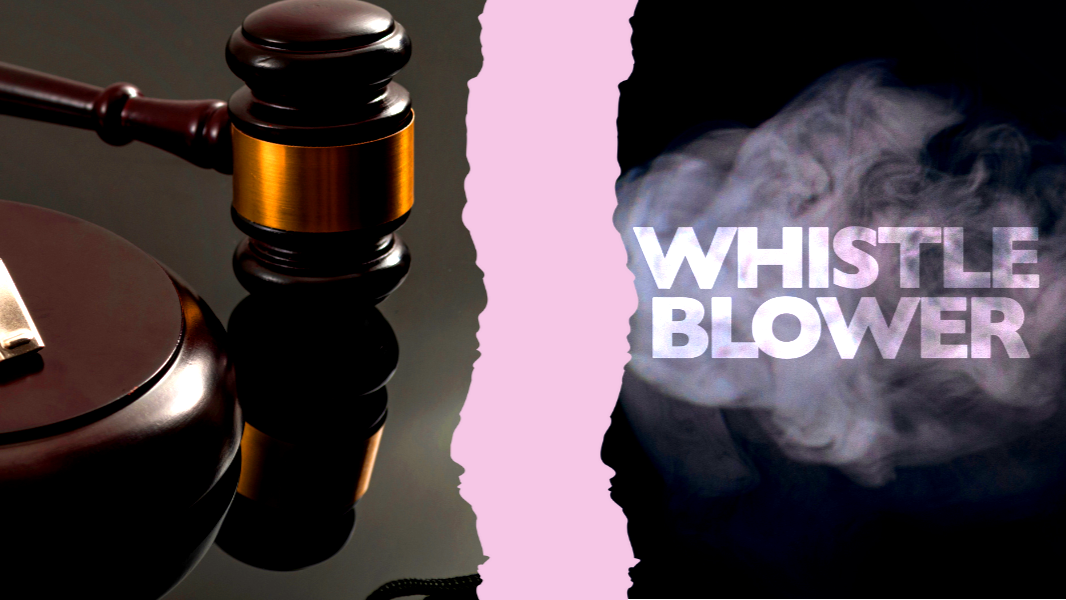Whistle Blowing In Employment, What is it?
Whistle blowing, as used in employment law, is the process of alerting authorities to hazardous, immoral, or unlawful actions occurring within a company.

Whistle blowing in employment is a critical topic that has gained increasing attention in recent years. It involves employees reporting misconduct, illegal activities, or unethical practices within an organization. Whistleblowers often act in the public interest by exposing behaviors or practices that could harm others or violate legal and ethical standards. This article provides a detailed explanation of whistleblowing in employment, its significance, and the various aspects surrounding it.

The output is:What is Whistle blowing?
Whistleblowing occurs when an employee, contractor, or any affiliated individual discloses information about wrongdoing within their organization. This could include:
- Illegal activities—such as fraud, corruption, bribery, or embezzlement.
- Health and safety violations—ignoring workplace safety standards or endangering employees and the public.
- Environmental harm—violations of environmental laws and regulations.
- Discrimination or harassment—Including racism, sexism, or other unethical workplace behaviors.
- Violation of company policies—Actions that contravene internal ethical guidelines or codes of conduct.
Whistleblowers play an essential role in bringing these issues to light, potentially preventing significant harm to individuals, communities, or the environment.
The Importance of Whistle blowing
Whistleblowing serves a crucial function in ensuring transparency, accountability, and ethical conduct in organizations. Here are some of the key reasons why whistleblowing is important:
1. Promotes Ethical Practices
When whistleblowers report unethical behaviors, they encourage organizations to maintain high moral standards. This creates a workplace culture where honesty and integrity are valued.
2. Prevents Harm
By exposing unsafe practices or illegal activities, whistleblowers can prevent harm to employees, customers, and the wider public. For example, reporting unsafe machinery or processes can save lives.
3. Fosters Accountability
Organizations are held accountable for their actions when whistleblowers step forward. This helps to ensure that businesses operate within the confines of the law and adhere to ethical guidelines.
4. Enhances Public Trust
When companies address issues raised by whistleblowers, it can lead to improved public trust. Transparency and accountability are attractive traits to customers, investors, and stakeholders.
Types of Whistle blowing
Whistleblowing can occur in various forms, depending on the nature of the disclosure and how it is reported. Here are the primary types:
1. Internal Whistle blowing
This occurs when an employee reports wrongdoing within the organization to a superior or designated body, such as a compliance officer or HR department. Organizations often encourage internal whistleblowing to address issues internally before they escalate.
2. External Whistle blowing
In this case, the whistleblower reports misconduct to external parties, such as regulators, law enforcement, or the media. External whistleblowing typically occurs when internal mechanisms are ineffective or non-existent.
3. Anonymous Whistle blowing
Some whistleblowers choose to report misconduct anonymously to protect themselves from retaliation. While anonymity can encourage more individuals to come forward, it may sometimes limit the organization’s ability to investigate the claim fully.
4. Public Interest Whistle blowing
This type of whistleblowing involves exposing issues that could significantly impact the public, such as environmental damage or public health risks.
Legal Protections for Whistleblowers
Whistleblowers often face risks such as retaliation, discrimination, or termination for exposing wrongdoing. To address these concerns, many countries have enacted laws to protect whistleblowers. Here are some examples:
1. United States—Whistleblower Protection Act
The Whistleblower Protection Act protects federal employees who report misconduct. Additionally, the Sarbanes-Oxley Act provides protections for employees in publicly traded companies.
2. United Kingdom – Public Interest Disclosure Act (PIDA)
PIDA protects employees from retaliation when they disclose information in the public interest. It outlines specific conditions under which whistleblowing is considered protected.
3. European Union Whistleblower Protection Directive
This directive mandates EU member states to provide robust protections for whistleblowers, including the establishment of secure reporting channels.
4. Australia – Corporations Act 2001
Australia’s whistleblower protections cover corporate employees and provide mechanisms for anonymous reporting.
Challenges Faced by Whistleblowers
Despite legal protections, whistleblowers often face significant challenges:
1. Fear of Retaliation
Whistleblowers may fear losing their jobs, being demoted, or facing workplace harassment. Retaliation remains one of the biggest barriers to reporting misconduct.
2. Emotional and Psychological Stress
The decision to blow the whistle can be emotionally taxing. Whistleblowers may experience anxiety, stress, or social isolation as a result of their actions.
3. Legal Risks
Whistleblowers may face legal challenges if their disclosures are deemed to violate confidentiality agreements or defamation laws.
4. Lack of Support
Without a strong support system, whistleblowers may feel isolated and powerless. Organizations that lack clear whistleblowing policies may exacerbate this problem.
Creating a Culture That Supports Whistle blowing
Organizations can take several steps to foster an environment where whistle blowing is encouraged and supported:
1. Establish Clear Policies
Companies should implement comprehensive whistleblowing policies that outline the reporting process, protections, and consequences of retaliation.
2. Provide Secure Reporting Channels
Offering anonymous and confidential reporting channels can encourage employees to come forward without fear.
3. Educate Employees
Training programs can help employees understand the importance of whistleblowing and how to report misconduct appropriately.
4. Ensure Leadership Commitment
Leadership should demonstrate a commitment to ethical practices and support for whistleblowers. This sets the tone for the rest of the organization.
5. Investigate Reports Thoroughly
Organizations must take whistleblowers’ reports seriously and conduct thorough investigations. Failure to act on disclosures can discourage future reporting.
Conclusion
Whistleblowing in employment is an essential mechanism for promoting ethical practices, accountability, and transparency within organizations. While it can be a challenging path for individuals, the positive impact of whistleblowing on society and organizations is undeniable. By fostering a supportive culture and implementing robust protections, organizations can empower whistleblowers to act in the public interest without fear of retaliation. This not only ensures compliance with legal and ethical standards but also builds a foundation of trust and integrity that benefits everyone involved.











